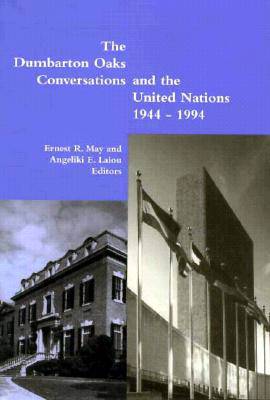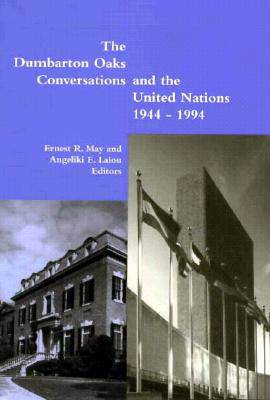
- Retrait gratuit dans votre magasin Club
- 7.000.000 titres dans notre catalogue
- Payer en toute sécurité
- Toujours un magasin près de chez vous
- Retrait gratuit dans votre magasin Club
- 7.000.0000 titres dans notre catalogue
- Payer en toute sécurité
- Toujours un magasin près de chez vous
The Dumbarton Oaks Conversations and the United Nations, 1944-1994
Ernest R. May, Angeliki E. LaiouDescription
In 1944, as the end of World War II approached, an important series of talks was held to plan the formation of postwar international institutions. The site for the conversations was Dumbarton Oaks in Washington, DC, a research institute administered by Harvard University. In a spirit of optimism, Secretary of State Cordell Hull said that the purpose was "to create the institutional foundations for a just and enduring peace," while Soviet ambassador Andrei Gromyko spoke of an international organization that would "guarantee for the peoples peace, security, and prosperity in the future." The meetings, which included debates on a variety of issues, were a first step toward the creation of the United Nations.
In 1994, the "Dumbarton Oaks Conference, 1944-1994" brought together scholars and policymakers who have been involved with the study of international organizations or have played important roles in them. The conference papers in this volume examine both the formation of the United Nations and a number of current issues, including human rights, collective economic sanctions, peacekeeping operations, and the evolution of the role of the Secretary-General.Spécifications
Parties prenantes
- Auteur(s) :
- Editeur:
Contenu
- Nombre de pages :
- 144
- Langue:
- Anglais
Caractéristiques
- EAN:
- 9780884022558
- Date de parution :
- 01-11-98
- Format:
- Livre relié
- Format numérique:
- Genaaid
- Dimensions :
- 152 mm x 229 mm
- Poids :
- 526 g

Les avis
Nous publions uniquement les avis qui respectent les conditions requises. Consultez nos conditions pour les avis.






